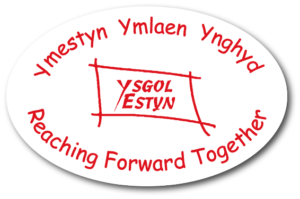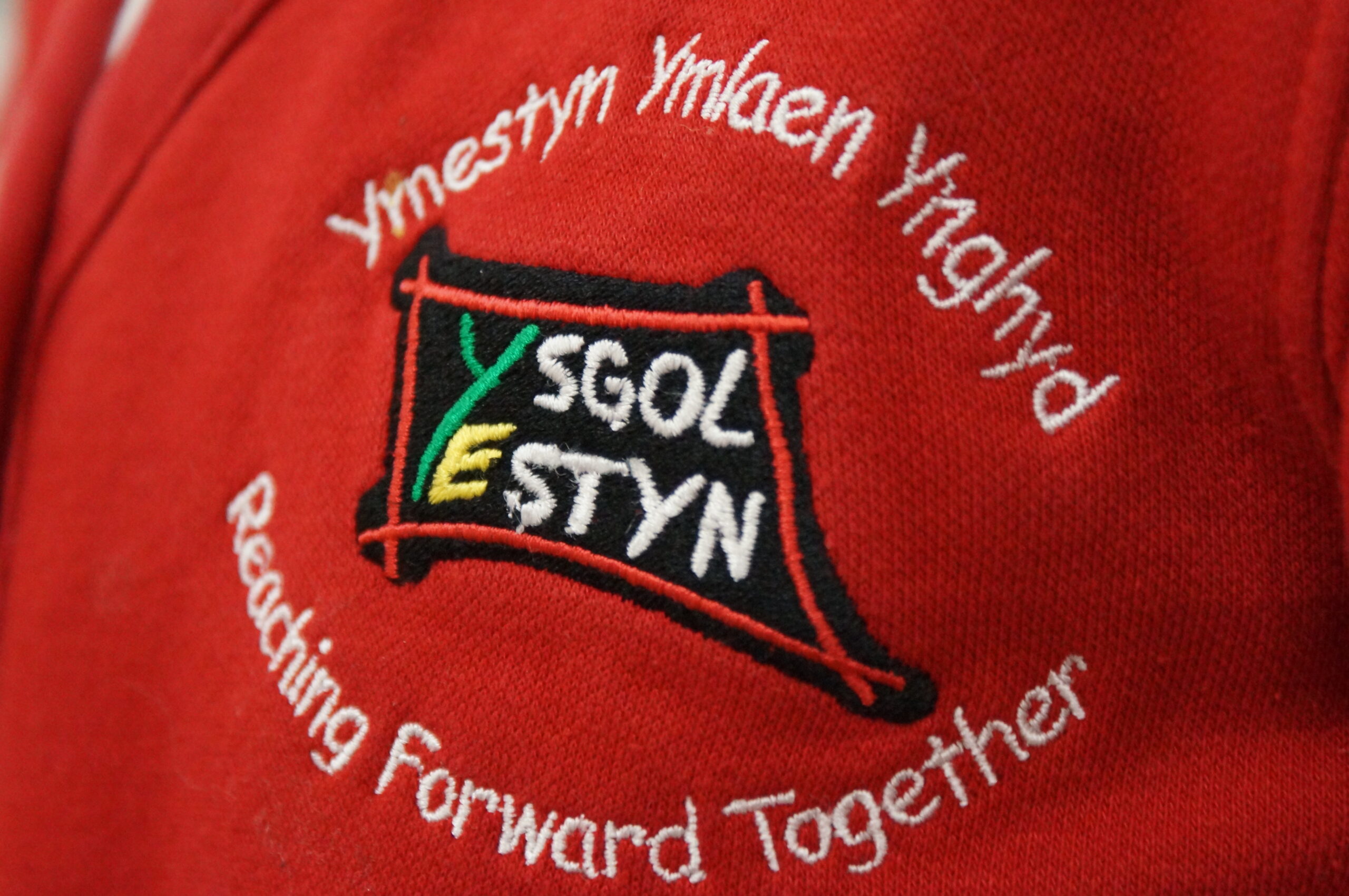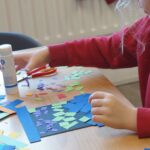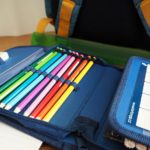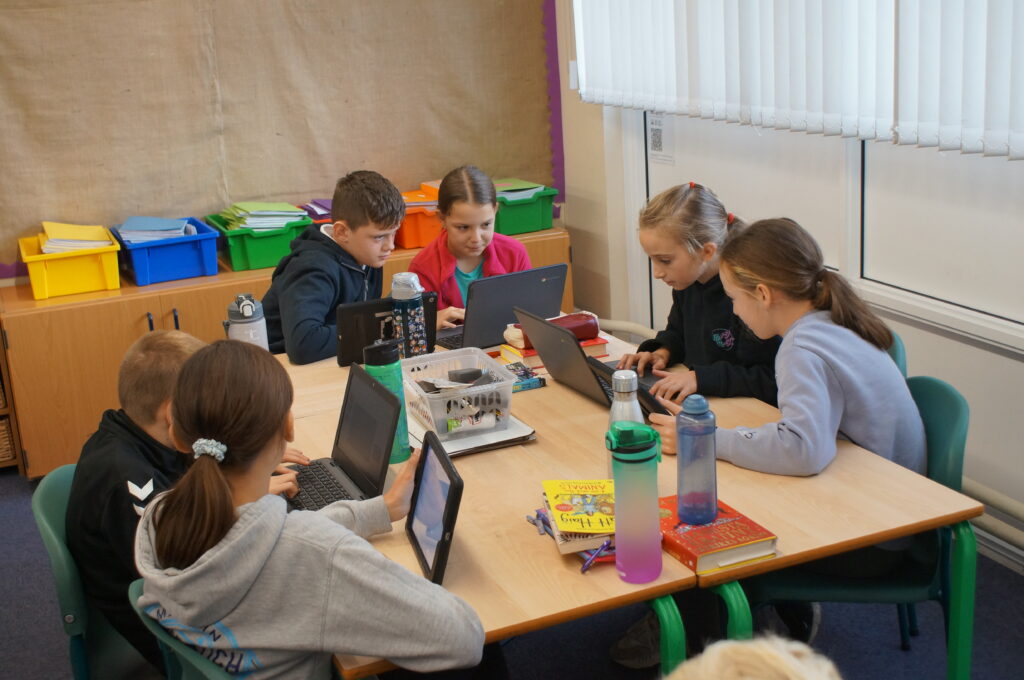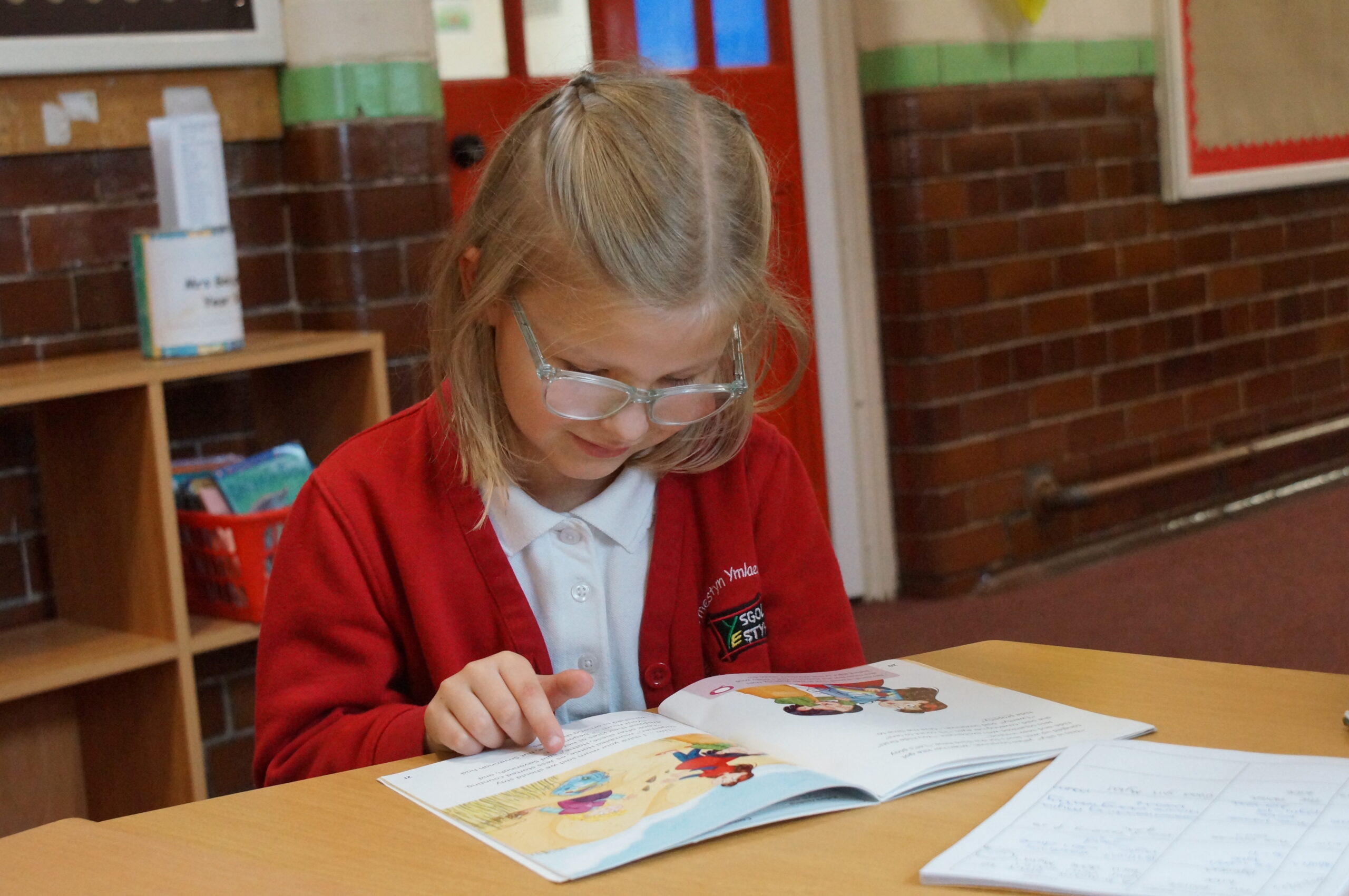Our Governors
Statement of School Philosophy and Aims
Philosophy
The philosophy of Ysgol Estyn is to provide a firm foundation on which all aspects of education will be built. It is our belief that education is a route to spiritual, moral, social, cultural, physical, and mental development and thus the well-being of the individual. We believe in equal opportunities for all the children in our school, irrespective of social background, culture, race, gender or ability. In order to ensure future progress and success, we aim to provide a curriculum that is broad and balanced. This entails following the National Curriculum, Religious Education, Collective Worship, Sex Education and PSHE and Citizenship. It is our belief that we should provide a learning environment that is motivating, exciting and caring, in order for a child to develop a sense of high self-esteem and academic achievement.
Our school philosophy is the framework for general and more specific whole school aims, and is the foundation from which all aspects of our school community develop.
- To create high standards of learning for all children, providing access to all areas of the National Curriculum and Foundation Phase Outcomes.
- To create a lively and stimulating learning environment, which is exciting today and a preparation for the future.
- To create a caring, secure environment so that all at Ysgol Estyn might enjoy high self-esteem.
- To develop responsibility towards the
- To create a lasting partnership with
- To develop an assured place for the school within the
- To create surroundings where each individual feels confident and at ease with what they do and about the school.
- To be able to respond positively to the opportunities and challenges of the rapidly changing world.
- To develop a commitment to the virtues of truth, justice, honesty, trust and a sense of duty.
Aims
Ysgol Estyn has two main aims in the school curriculum.
- To provide opportunities for all pupils to learn and to
- To promote pupils’ spiritual, moral, social and cultural development and to prepare all pupils for the opportunities, responsibilities and experiences of life.
These are based on an approach that stresses continuity, balance, recognition of the individual and the importance of skills, concepts, attitudes and values.
Aim 1. To provide opportunities for all pupils to learn and to achieve
The school aims to:
- develop enjoyment and commitment to learning
- build on pupils’ strengths, interests and experiences
- develop their confidence in their capability to learn, work independently and collaboratively
- equip them with the essential learning skills of Literacy, Numeracy and Information and Communication Technology
- promote enquiring minds and a capacity to think rationally
- contribute to the child’s sense of identity through knowledge and understanding of the spiritual, moral, social and cultural heritages of Britain’s diverse society, and of the local, national, European and global dimensions of their lives
- encourage pupils to appreciate human aspirations and achievements in aesthetic, scientific, technological and social fields
- provide a rich and varied working environment to enable pupils to acquire, develop and apply a broad range of knowledge, understanding and skills
- enable children to think creatively and critically and to solve problems
- develop their physical skills, encouraging them to acknowledge the importance of a healthy lifestyle and of keeping themselves and others safe.
Aim 2: To promote pupils’ spiritual, moral, social and cultural development and prepare all pupils for the opportunities, responsibilities and experiences of life.
The school curriculum aims to:
- promote pupils’ spiritual, moral, social and cultural development, in particular distinguishing between right and wrong
- develop their knowledge, understanding and appreciation of their own and different beliefs and cultures
- develop pupils’ integrity
- help them to be responsible, caring citizens and to make a difference for the
- promote equal opportunities
- develop an awareness and understanding of the environment
- guide them to an understanding of their rights and responsibilities
- promote pupils’ self-esteem and emotional well-being
- help pupils form and maintain worthwhile and satisfying relationships based on respect for others and themselves
- enable pupils to respond to opportunities, challenges and responsibilities, to manage risk and cope with change and adversity
- prepare children for the next stages of their education
- develop children’s imagination and creativity by offering a wide range of experiences
- teach an appreciation of all aspects of the arts; the ability to express feelings through the creative arts and the skills to use music, drama and the arts as a means of expression.
Further information
Important Documents and Resources
DfES/QCA The National Curriculum Handbook for Primary Teachers 2000
The Stationery Office School Standards and Framework Act 1998
Reviewed April 2015
COMPLAINTS PROCEDURE POLICY
1. Introduction
The Governors and Staff of Ysgol Estyn recognise that all complaints should be dealt with fairly and promptly; taking careful note of justified complaints ensures that the school can improve its performance, public accountability and public image. Complaints should be received constructively and helpfully with that in mind, and all staff at this school should strive to satisfy the legitimate needs of parents and pupils.
Any problem or concern should be raised promptly with the class teacher or member of staff responsible for the area or action you are concerned about. If the concern is more serious you may prefer to make an appointment to discuss the matter with the headteacher. All staff will make every effort to resolve problems promptly at this informal stage. Most concerns and potential complaints can best be resolved through informal discussion with the relevant member of staff or Headteacher.
Stage 1 (Headteacher)
If the complainant is dissatisfied with the response of the member of staff (or the headteacher if they have been involved at the informal stage) then concerns can be put in writing to the headteacher as an official complaint. It should be made clear if the matter is to be dealt with as a complaint. The headteacher will investigate the complaint and provide a written response. This will normally be within 10 school days of the letter, but if, for example, more time is needed to complete the investigation we will inform the complainant.
If the original concern was about an action by the headteacher personally, and it has already been discussed at the informal stage, then it should be put in writing and addressed to the chairman of governors (stage 2).
Stage 2 (Chairman of Governors)
If dissatisfied with the headteacher’s response, contact may be made with the chairman of governors. The chairman’s name, and how to contact him/her, is published in the school’s Annual Report to parents, but it will also be available from the school office.
The chairman will investigate the complaint and, in most cases, seek to resolve the matter through discussion with the complainant and the headteacher. At the end of this stage the chairman will provide a written response. This will normally be within 10 school days, but the complainant will be kept informed if more time is needed.
Stage 3 (Governing Body)
If dissatisfied with the chairman’s response at the end of stage 2, the complaint can be referred to the governing body by writing to the chairman or clerk to the governing body. The governing body will ask a small panel of governors to investigate the complaint. This will normally be arranged within fifteen school days of the complaint being received, depending on the availability of all concerned. The complainant may be invited to speak to the panel at a meeting and can be accompanied by a friend or representative. After the meeting the complainant will be advised of the outcome in writing. This will normally be within 10 school days of the meeting.
For most complaints the decision of the governors is the last step in the procedure.
Other Complaints
There is a specific procedure for complaints about the school curriculum and matters relating to it, including the provision of information and charges. In general these are dealt with in a similar way to other complaints. However, there are some specific differences –
A complaint can be made either to the LEA or the Governing Body in the first instance.
The complaint will be investigated by whoever of these is responsible for the matter complained about.
The Governing body will inform both the complainant and the LEA of the outcome of its investigation.
There is a right of appeal to the LEA, and then to the Secretary of State.
In general, internal school matters are the responsibility of the school governing body. However, you may have a complaint which relates to something which is the Local Authority’s responsibility.
The LEA will provide advice to parents and schools on best practice procedures for dealing with complaints. The LEA will, where appropriate, check to make sure that the complaint has been reasonably dealt with.
Where required, LEA officers may play a role in helping schools to investigate and resolve particular complaints.
In summary the following procedures will be adhered to when dealing with general complaints.
School admissions and exclusions
Separate complaint and appeal procedures exist for these matters, and appropriate information is available on request from the school.
Special needs
There is a separate appeal procedure for these matters, and appropriate information is available on request from the school.
Complaints against school staff
If a complaint amounts to or includes an allegation against a member of staff, this may need to be considered under the school’s disciplinary procedure for employees, rather than the complaint procedure.
A complaint about the Local Education Authority
Procedures for complaining about the Local Education Authority are set out in a separate leaflet about the Council’s complaints procedure. A copy of this leaflet is available from the school, libraries and Council offices. Complaints should be made in the first instance to the head of the service or section concerned. If you are still not satisfied you may complain to the Director of Education, County Hall, Mold. Telephone 01352 752121.
